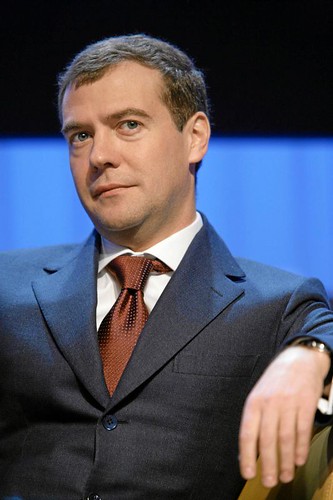Pakistan President Pervez Musharraf put the nail in his own coffin. By declaring a state of emergency, which includes cutting off private media outlets and detaining opposition figures, he has heightened public hatred toward his regime and put Pakistan on the brink of chaos.
Western officials have publicly condemned the move—U.S. Secretary of State Condolleeza Rice pleaded with Musharraf not to go through with it—but privately worry about what would follow in the wake of his demise.
Indeed, stability is paramount in a country home to a mixture of dangerous elements: terrorism, the constant threat of military strife with its Indian neighbor, the presence of Osama Bin Laden, nuclear weapons, and now a weak and unpopular military dictatorship.
With disastrous conditions like this, it is hard to see the silver lining in Pakistan. But there is reason for hope amidst the debris. What has accompanied Musharraf’s distress is the dramatic rise of civil society in the country—enough to make Robert Putnam blush—a precursor for homegrown democracy.
The concept of civil society largely owes itself to the aforementioned political scientist Robert Putnam—famous in the U.S. for his groundbreaking work, “Bowling Alone”, in which he stated that the decline of civic associations in the U.S.—organizations outside of the government, symbolized in this case by bowling leagues—has led to political apathy and democratic deficiency.
He is the godfather of social capital and civil society. And according to Putnam, people who belong to civic associations, whether sports clubs or bird-watching groups, develop trust, participation, and bonds between peers, making them better democrats.
His study of democracy in Italy, “Making Democracy Work”, found that the civic community, whose citizens are “helpful, respectful, and trustful toward one another, even when they differ on matters of substance,” was more entrenched in the north of Italy. This is why the region was more democratic and less corrupt than its less civic neighbors in the south. In short, his conclusion was “the more civic a region, the more effective its government.”
What does this have to do with Pakistan? As the Musharraf debacle has illustrated, backing a military dictator is a hazardous enterprise, while Iraq has shown that overthrowing autocrats by force and implanting democracy is also a troublesome tactic. If a third option, indigenous democracy, is the right course of action, the creation of a vibrant civil society maybe the means to bring it about.
There are signs that Pakistan may be ripe for civil society-backed democracy. The current crisis can largely be traced to the removal of Supreme Court Chief Justice Iftikhar Chaudhary this March, reportedly on trumped up corruption charges—Musharraf’s seemingly favorite strategy of silencing dissent—but likely because of his independent inquiry into the illegal detention of Pakistanis. Packs lined the streets, mainly comprised of lawyers in business suits, in perpetual protest until Chaudhary was reinstated—to much fanfare—and granted rock star status.
These suits could represent the future of Pakistan. With a burgeoning middle-class—spurred by capitalism—and publicly active lawyers bringing about political reform, the country may be another testing ground for Putnam’s theory.
And who are the ones being detained by Musharraf through this state of emergency? Lawyers and opposition politicians are the main targets—despite the general’s statements on tackling extremism—of the martial law declaration. "Those he has arrested are progressive, secular-minded people while the terrorists are offered negotiations and ceasefires,” rightly declared Asma Jahangir, a Pakistani lawyer and human rights activist.
However, do a group of lawyers, upset by the president’s stranglehold on the judiciary, really constitute a reformist civil society and the hope for democracy in Pakistan? By definition, groups organizing outside of the scope of government can be deemed a part of civil society. Fighting for civil rights, moreover, logically makes them civil activists.
Civil society stamped and approved or not, these lawyers cannot bring about change by themselves. Democracy hinges on more civil groups joining the fight, and perhaps on Western pressure, among many other things. And even with the inception of democracy, Pakistan will still be one of the most dangerous countries on the planet. There will still be a large terrorist presence—indoctrinated by the country’s numerous madrassahs—and a powerful military and intelligence apparatus, linked to the Taliban and other Islamic extremists, and topped off by a nuclear weapon arsenal.
Putnam’s assertions are flawed but valid. Perhaps they will be tested in Pakistan. Be that is it may, rising public activism, embodied by the protesting groups of lawyers, while not sufficient, is necessary for democratic pluralism. There may be positive effects of the state of emergency after-all.
Subscribe to:
Post Comments (Atom)





No comments:
Post a Comment